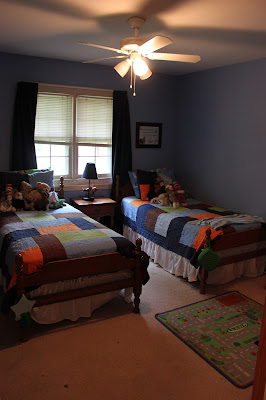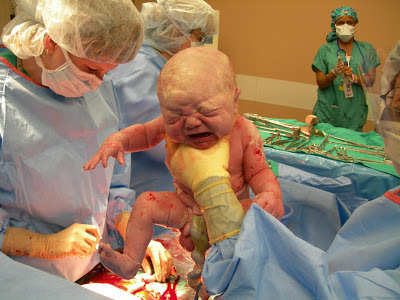Stonecatcher
I’ve watched.
I’ve watched as we have raucously cheered black men as they
run down a green field carrying an oblong ball, but felt threatened when they
run down our streets.
I’ve watched as young, unarmed black men, and even black
boys as young as my own son, have been perceived as a threat and killed though
they were running away, sitting in their car, or holding a pack of skittles.
I’ve watched as those who say they support protests as long
as they are peaceful, are also the ones who were pleased to hear the men who
silently and peacefully took a knee in protest called SOBs and cried out in anger
over their peaceful protest.
I’ve watched as we have longed for diversity in our churches
and cry out “all are welcome here”, and seen that what we really mean is “all
are welcome here as long as you dress like us, talk like us, sing like us, pray
like us and worship like us” because we aren’t willing to change.
I’ve watched as my husband and I drove in our mini van for
months with a broken light and nothing happened- nothing, then watched as our
black friend was pulled over in less than 1 week of having a light out. He was
interrogated about where he was going, why he was in the neighborhood he was
in, what business did he have here, because of a broken light.
I’ve watched as my black brothers and sisters have cried out
in pain and asked us to join them. I’ve watched as we’ve decided that because
we are not personally racists then racism isn’t a problem or that because we
can’t see systemic racism (because we have the privilege of not seeing it) it’s
not there. I’ve literally sat with my black friends as they have sobbed over
the response or lack of response from their white brothers and sisters.
I hope you see how much I used the word “we” above. I am not
only looking outside of myself, but also within. I have benefited from these
systems as well. I have been unwilling to change or be uncomfortable or lay
aside my preferences for the sake of my black brothers and sisters. To my
shame.
And that’s not to say we (Jack and I) have been apathetic.
We’ve worked within our sphere to change the things that we’ve felt we have the
power and influence to change. We have listened to black voices and sought change.
We’ve had hard conversations and uncomfortable ones. We haven’t been doing nothing,
but we can do more. We must do more. It’s not enough any longer to only work in
the background, to only work in those spheres where we feel like we can make a
change. We also need to speak in the forefront, to work in the systems what we
don’t feel like we can change. It’s time to leverage our voices and our privilege.
When I was in college, I joined the Gospel Choir. I missed
singing and being in a choir and this seemed like a great place for me to find
that again. And in so many ways, I loved it. But it was also hard and uncomfortable.
I was the only white person in the choir. I had never experienced being in the
minority before. It wasn’t easy. But I pressed on. They made me feel welcome
and part of the group and I knew they liked me, so I swallowed my discomfort
and kept going, even finding myself enjoying it. It was a different style of
music than I was used to, and a whole different way of singing and I had to
adapt and learn. And then one day something happened. A rehearsal got very spirit-filled,
everyone could feel it, including me. But I was not prepared for the way that
my black brothers and sisters responded to the spirit- the exuberance unnerved
me, the charismatic nature of it put me at unease, I didn’t understand it. And
after that rehearsal, I didn’t go back again.
I wish so much I could go back to that girl and tell her not
to run. I wish I could tell her to lean into her discomfort not run away from
it. To listen, to learn, to ask questions and to embrace the discomfort. I know
now this is how so many of my black brothers and sisters feel as they navigate
primarily white spaces. And I’ve watched as they have done the hard work that
19 year old me wasn’t willing to do. I’ve watched them lean in, lay aside their
comfort, ask questions and learn for the sake of not losing this community they’ve
found themselves in.
I’ve been doing more of that in my own life since those days
of college. Our church outside of Atlanta was a predominately white church, but
our youth group, where Jack was the youth pastor? It was evenly split and at
times even majority black students. We made strides, but even as I look back on
that time, I think, “We could have done more. We should have done more.” I wish
I could tell younger Jack and Carrie- lean in more. Advocate more. Listen more.
So, today I am saying there is more I can do. I am
committing to leaning in more. To listening more. To speaking up more in the spaces
that I have influence. To embracing discomfort. To having more hard
conversations. MLK eloquently said “In the end, we will remember not the
words of our enemies, but the silence of our friends.”
In his book, Just Mercy, Bryan Stevenson, ends by taking
us to the story of Jesus and the woman caught in adultery. “When the woman accused
of adultery was brought to Jesus, he told the accusers who wanted to stone her
to death, “Let he who is without sin cast the first stone.” The woman’s accusers
retreated, and Jesus forgave her and urged her to sin no more. But today, our
self-righteousness, our fear, and our anger have caused even the Christians to
hurl stones at people who fall down, even when know we should forgive or show compassion.
I told the congregation that we can’t simply watch that happen. I told them we
have to be stonecatchers.” (p. 309)
I will not be silent as my friends face these days. I will
not simply watch it happen. I will be a stonecatcher.


Comments